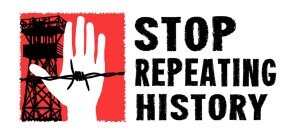Additional Resources
General Resources
Densho.org (rich collection of information, including searchable database of interviews of camp survivors and others; curriculum guide (including materials for teaching from primary sources, examining racism and discrimination, and the incarceration); a guide to resources on the wartime incarceration; a comprehensive encyclopedia of the Japanese American incarceration, and photos and original documents (such as camp newspapers and WWII documents that formed the basis for the coram nobis cases)
Sample Curricula
Korematsuinstitute.org (seeking Fred Korematsu’s daughter, Karen Korematsu, as a speaker; curriculum guide; other materials on Fred Korematsu and his cases)
Japanese American National Museum (jamn.org) (on-site tours, virtual visits, and live and virtual programs for school-age and up, and curriculum materials)
Books, Plays, and Films
There are hundreds of excellent books, articles, plays, and films about the wartime Japanese American incarceration. See, e.g., Densho’s resource guide. The following focuses on the wartime Supreme Court cases, the coram nobis reopening of those cases, and Japanese American legal history.
Books and Articles
There are numerous books and articles that discuss the wartime Japanese American Supreme Court cases and their reopening. These are just a few of the more in-depth pieces.
Kathryn Bannai, Gordon Hirabayashi v. United States: “This is an American Case,” 4 Seattle J. Soc. Just. 41 (2012).
Lorraine K. Bannai, Enduring Conviction: Fred Korematsu and His Quest for Justice (2015).
Lorraine K. Bannai, Korematsu Overruled? Far From It: The Supreme Court Reloads the Loaded Weapon, 16 Seattle J. Soc. Just. 897 (2018).
Lorraine K. Bannai, Taking the Stand: The Lessons of Three Men Who Took the Japanese American Internment to Court, 4 Seattle J. Soc. Just. 1 (2005).
Lane Hirabayashi, A Principled Stand: the Story of Hirabayashi v. United States (2014).
Peter Irons, Justice at War: The Story of the Japanese American Internment Cases (1993).
Peter Irons, Justice Delayed: The Record of the Japanese American Internment Cases (1989).
Peggy Nagae, Justice and Equality for Whom? A Person Journey and Local Perspective on Community Justice and Struggles for Dignity, 81 Or. L. Rev. 1133, 1141-42 (2002).
Judge Mary M. Schroeder, What Gordon Hirabayashi Taught Me About Courage, 4 Seattle J. Soc. Just. 65 (2012).
Eric K. Yamamoto, In the Shadow of Korematsu: Democratic Liberties and National Security (2018).
Eric K. Yamamoto, Masquerading Behind a Façade of National Security, 128 Yale L.J. Forum 688 (2019).
Eric K. Yamamoto, Lorraine K. Bannai, and Margaret Chon, Race, Rights and National Security: Law and the Japanese American Incarceration (3d ed. Wolters Kluwer 2021).
Plays
Hold These Truths, an award-winning play by Jeanne Sakata, tells the story of Gordon Hirabayashi, who was a student at the University of Washington when he defied the wartime orders that led to the imprisonment of Japanese Americans.
For Us All, also be Jeanne Sakata, is a radio play about Fred Korematsu’s reopening of his historic Supreme Court case and the legal team that handled the case. It is being produced by L.A. Theater Works and will premier on, and be available for download after, May 1, 2021.
Films
If you are interest in showing these films, please contact stoprepeatinghistory.org, which may be able to provide accompanying speakers or materials.
Alternative Facts: The Lies of Executive Order 9066 is a one-hour award-winning documentary that exposes the government cover-up of evidence while it was justifying its WWII mass removal of Japanese Americans—a cover-up that went all the way to the United States Supreme Court. It also examines the parallels to the current climate of fear, attitudes towards immigrant communities, and similar attempts to abuse the powers of the government.
And Then They Came For Us is another one-hour award-winning documentary. Featuring George Takei and many others who were incarcerated, as well photographs of Dorothea Lange, the film tells the story of the wartime incarceration and cases and draws parallels with the treatment of the Muslim community.
In The Soul of America writer, journalist, and Pulitzer Prize-winning historian John Meachum delves into the country’s current political and historical moment by examining forces of hatred and division as recurring themes in American life, including the women’s suffrage movement, the incarceration of Japanese Americans during World War II, McCarthyism, and the struggle to pass Civil Rights legislation in the 1960s.
In addition to the above, see Never Give Up! Minoru Yasui and the Fight for Justice, a film about lawyer Min Yasui who challenged the wartime orders issued against Japanese Americans as an act of civil disobedience and took his case to the Supreme Court. He went on to a defend human and civil rights for all communities, to reopen his WWII case in a coram nobis proceeding in 1982, and to fight for redress for Japanese Americans,
